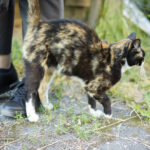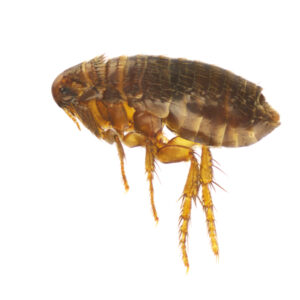
Need Help? Call Us On 0161 776 9832 For Expert Pest Control Advice On How To Identify Pest Infestations And Help Solve Your Pest Problem.
Youngs Pest Control Flea Treatments in Castleton
At Youngs Pest Control, we understand the difficulty of dealing with flea infestations. That's why we're here to help. We offer personalized pest control solutions for homes and businesses in the area. Our experienced technicians are committed to using safe and effective methods to eliminate fleas. We are a part of the National Pest Technician Association (NPTA) and have been in the industry for over 15 years, so all our work is of the highest standard.
committed to using safe and effective methods to eliminate fleas. We are a part of the National Pest Technician Association (NPTA) and have been in the industry for over 15 years, so all our work is of the highest standard.
We at Youngs Pest Control are a local family-run business that strives to keep properties free of fleas for you and your family. Our technicians are experts in the field, so if fleas have taken over, don't hesitate to give us a call.
Some of the services we offer include :
- Flea eradication
- Inspections
- Treatments
- Follow up services
- Prevention Tips
Fleas are a common problem in households and can cause great discomfort to both pets and their owners. Professional flea treatment is necessary for the effective control of fleas as it requires an understanding of the biology, behaviour and ecology of these pests. Castleton residents have access to professional flea treatment services from us at Youngs Pest Control which provides comprehensive solutions for flea infestations.
Professional flea treatment involves a combination of methods. The success of professional flea treatment depends on a thorough inspection of the extent of the infestation, appropriate selection and application of insecticide by professionals as well as ongoing monitoring and follow-up treatments if necessary.
Ways In Which Fleas Can Spread?
Fleas can spread in various ways such as contacting with infected animals or surroundings, take a look below:
- Contact with Infected Animals or Surroundings: Fleas can be transmitted from one animal to another through direct contact or exposure to surfaces or an environment that has been contaminated with flea eggs or larvae. Pets that regularly roam outside and interact with other animals are especially susceptible to flea infestations. The eggs and larvae can stick to your pet's fur and be transported into your home, where they can hatch and flourish.
- Clothing and Personal Belongings: Fleas can hitchhike on clothing, bedding, and personal belongings that have been in contact with flea-infested areas. This means that if you visit a friend's home that has a flea infestation, you could inadvertently bring fleas back to your own home on your clothing or other belongings.
- Poor Sanitation: Fleas thrive in warm and humid environments. Poor sanitation can create ideal conditions for flea populations to grow and spread. If your home is not regularly cleaned, or if you have clutter that provides hiding places for fleas, you may be at higher risk of a flea infestation.
- Travel: If you travel with your pet, you may be exposing them to fleas in unfamiliar environments. Fleas can be found in hotels, campgrounds, and other areas where pets are common. If your pet contracts fleas while travelling, they can bring them back home and spread them to other pets or throughout your home.
- Wild Animals Carrying Fleas: Wild animals such as raccoons, opossums, and squirrels can also carry fleas. When these animals visit your yard, they can leave behind flea eggs or larvae that can hatch and infest your pets or home. Additionally, fleas can jump from one animal to another, meaning that your pets can contract fleas from wild animals even if they don't come into direct contact with them.
Signs That Indicate You Require Flea Treatment
If you suspect your cat or dog has fleas, it is essential to look out for signs of flea activity. Scratching, sores, hair loss, and red bumps on your pet's skin are some indicators that require immediate attention. Additionally, small black specks scattered throughout bedding or carpets could be flea faeces. It is vital to check specific areas, such as the hindquarters of dogs and the head or neck of cats, where fleas tend to target.
Fortunately, there are several treatments available for flea removal in pets. These include topical products like sprays, shampoos, and spot-on medications that kill adult fleas and prevent re-infestation for weeks after application. Remember to always consult with you vet on which form of treatment is best for your pet before administering any treatments.
How To Prepare Your Home For Flea Eradication
Preparation is essential when it comes to eradicating a flea infestation. Before any treatments can begin, it is crucial to clean the home thoroughly. This includes vacuuming carpets, rugs, and furniture to remove fleas, eggs, and larvae. It is also important to dispose of the vacuum bag or its contents in a sealed plastic bag outside of the home to prevent reinfestation. Washing bedding as well as clothing in hot water will kill any of the remaining fleas or eggs that may be present. High heat drying ensures that everything is completely dry before returning them back into your living space. Clutter should be removed from floors and surfaces to give pest control professionals easy access to all areas within the house that require treatment.
Moving furniture away from walls allows for easier access by exterminators to baseboards and other hard-to-reach places where cat fleas may hide. After cleaning up and preparing your house for treatment, upholstered furniture, including couches, should also be vacuumed thoroughly, with extra attention paid under cushions where debris tends to collect. By following these preparation steps, homeowners can help ensure more successful eradication of pesky pests like cat and dog fleas through professional pest control treatments from us at Youngs Pest Control in Castleton without further disruptions caused by future infestations.
What You Can Expect After Having A Professional Flea Treatment
Following a professional flea treatment, homeowners should expect a significant reduction in fleas within their homes. While some fleas may still be present after the initial application, they will eventually die off as they come into contact with residual insecticide left behind by our technician. It's important to note that scratching behaviours from pets may continue even after treatment due to previous bites or irritation caused by cat fleas.
 To ensure the complete removal of fleas from the home environment, it's crucial that pet owners follow up with regular preventative measures such as administering monthly flea preventatives and vacuuming frequently. If you suspect a reoccurrence of fleas, it is vital to contact us at Youngs Pest Control immediately, we will send over our tech to rectify your problem as soon as possible.
To ensure the complete removal of fleas from the home environment, it's crucial that pet owners follow up with regular preventative measures such as administering monthly flea preventatives and vacuuming frequently. If you suspect a reoccurrence of fleas, it is vital to contact us at Youngs Pest Control immediately, we will send over our tech to rectify your problem as soon as possible.
So, if your cat or dog shows signs of a flea infestation, it is important to contact Youngs Pest Control in Castleton right away to discuss available treatment options. Our team of experts are more than happy to answer any questions and provide guidance on the best methods for the complete eradication of fleas from your home. Don't let the fleas take over the peace in your home. Rather call us on 0161 776 9832 Today!
We also service Neighboring areas like Rochdale and Norden.
OL11
